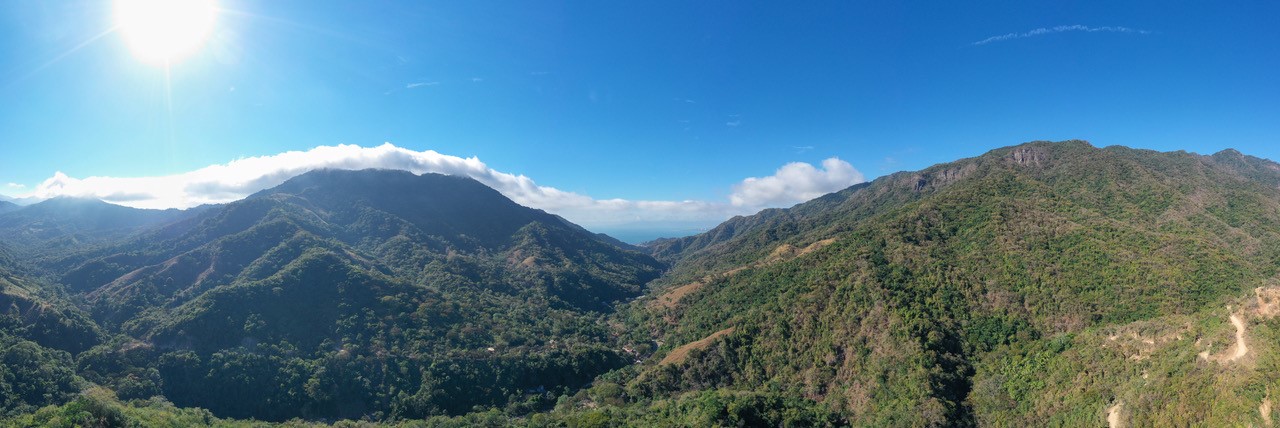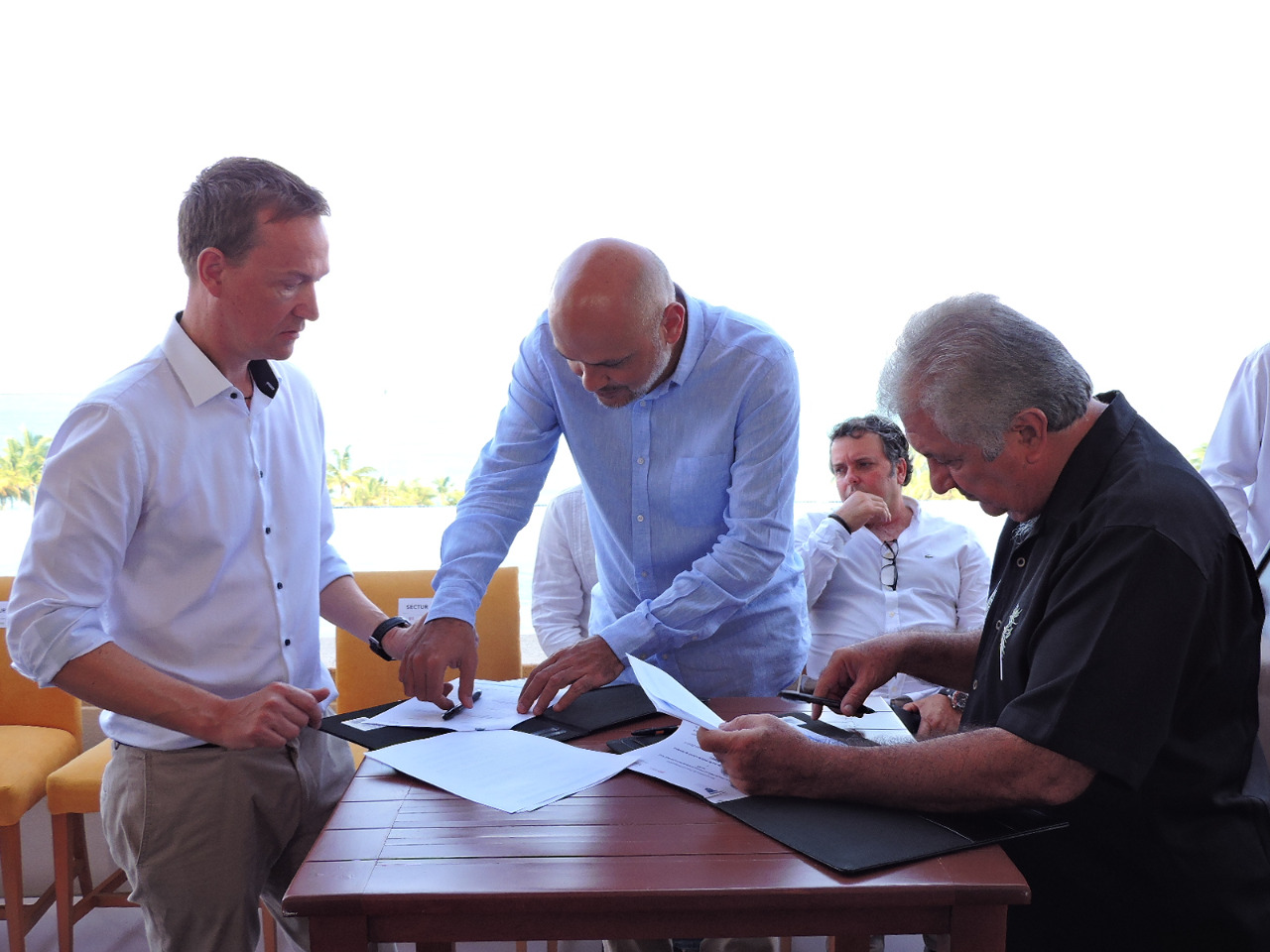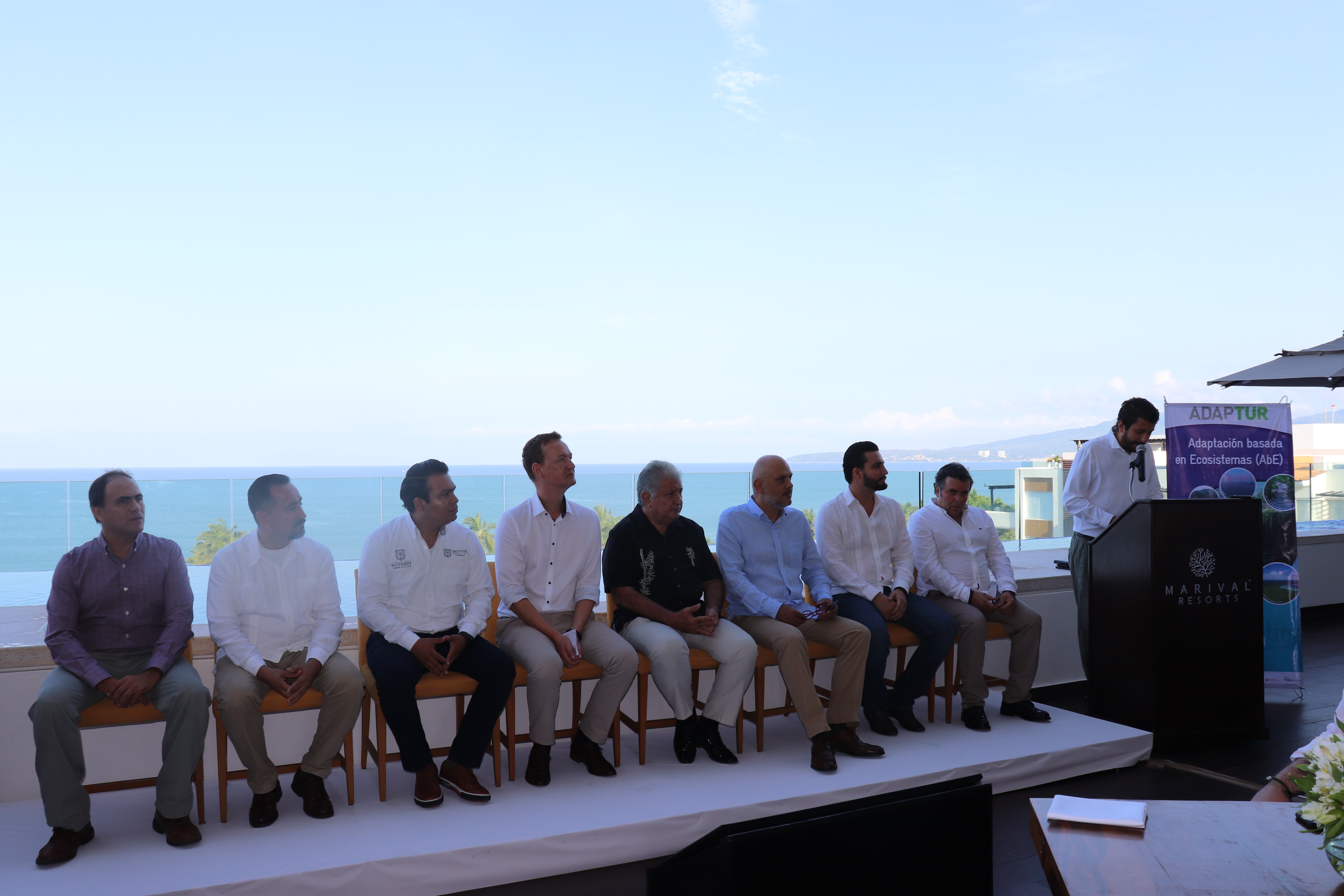Impacts on the operation, infrastructure and market, are some of the risks that climate change poses for the tourist destination of Riviera Nayarit-Puerto Vallarta. In the face of such a climate emergency, the Association of Entrepreneurs of Puerto Vallarta and Bahía de Banderas) (AEBBA) has taken the lead in promoting ecosystem-based adaptation solutions.
Entrepreneurs recognize that conservation of the bay, mountain forests and wetlands are a priority for socio-economic development, to ensure water in the future and protect against floods and storms.

The commitment was ratified on August 2nd through the signing of the Memorandum of Understanding, between AEBBA and the Deutsche Gesellschaft für Internationale Zusammenarbeit (GIZ) GmbH (German Cooperation for Sustainable Development), as well as the creation of a Green Agenda Committee, which will be led by entrepreneurs from the region. During the event, the president commented:
” Today we assume this challenge of starting the process of adaptation to climate change in our companies and partners, as something indispensable with a sense of urgency.”
The objective of this collaboration is to build joint solutions between the private, public and civil society sectors, which is why the state and municipal tourism authorities of Nayarit and Jalisco expressed their support for the initiative. Some highlight actions are: making adjustments to the policy and regulatory framework, encouraging financial mechanisms to implement adaptation solutions, and integrating the risks of climate change into new developments in real estate and tourism infrastructure.

Riviera Nayarit – Puerto Vallarta is one of the three pilot sites in Mexico to implement the Ecosystem-based adaptation to climate in cooperation with the private sector (ADAPTUR). It is funded by the German Federal Ministry for the Environment, Nature Conservation and Nuclear Safety (BMU), and implemented by the Deutsche Gesellschaft für Internationale Zusammenarbeit (GIZ) GmbH, in conjunction with the Ministry of Tourism (SECTUR) and the Ministry of Environment and Natural Resources (SEMARNAT), and the technical support of the National Commission of Natural Protected Areas (CONANP) and the National Institute of Ecology and Climate Change (INECC).

